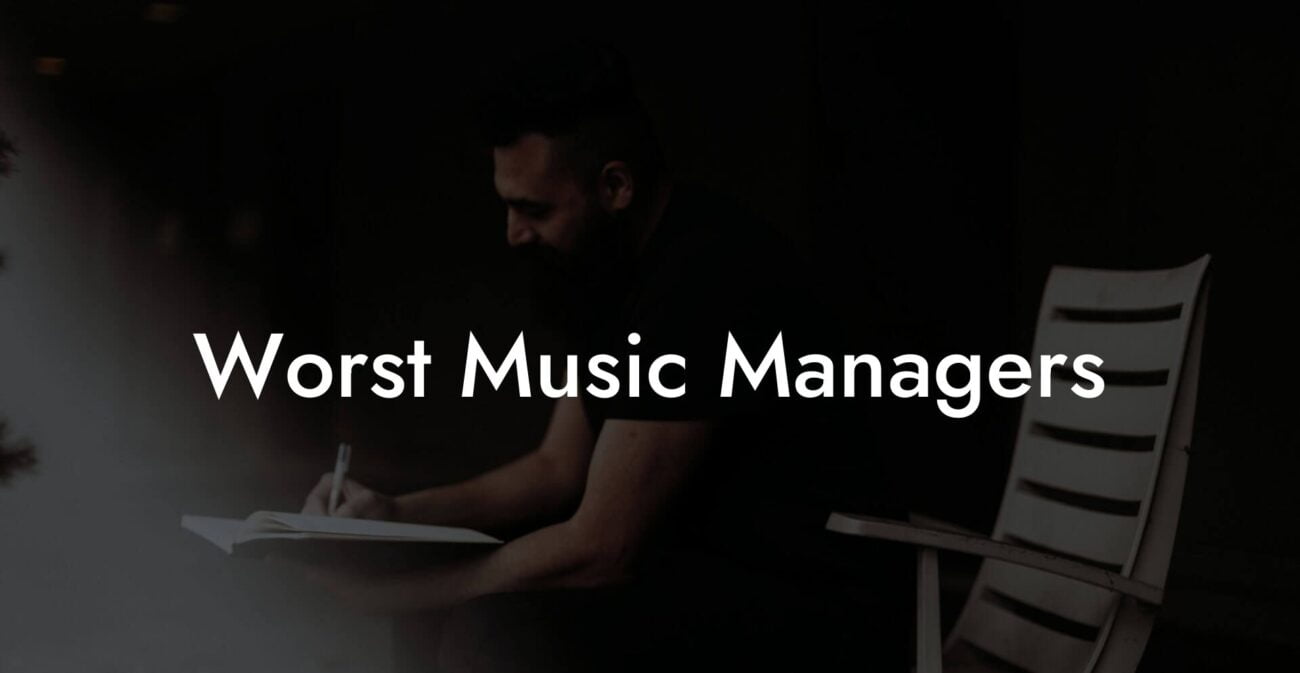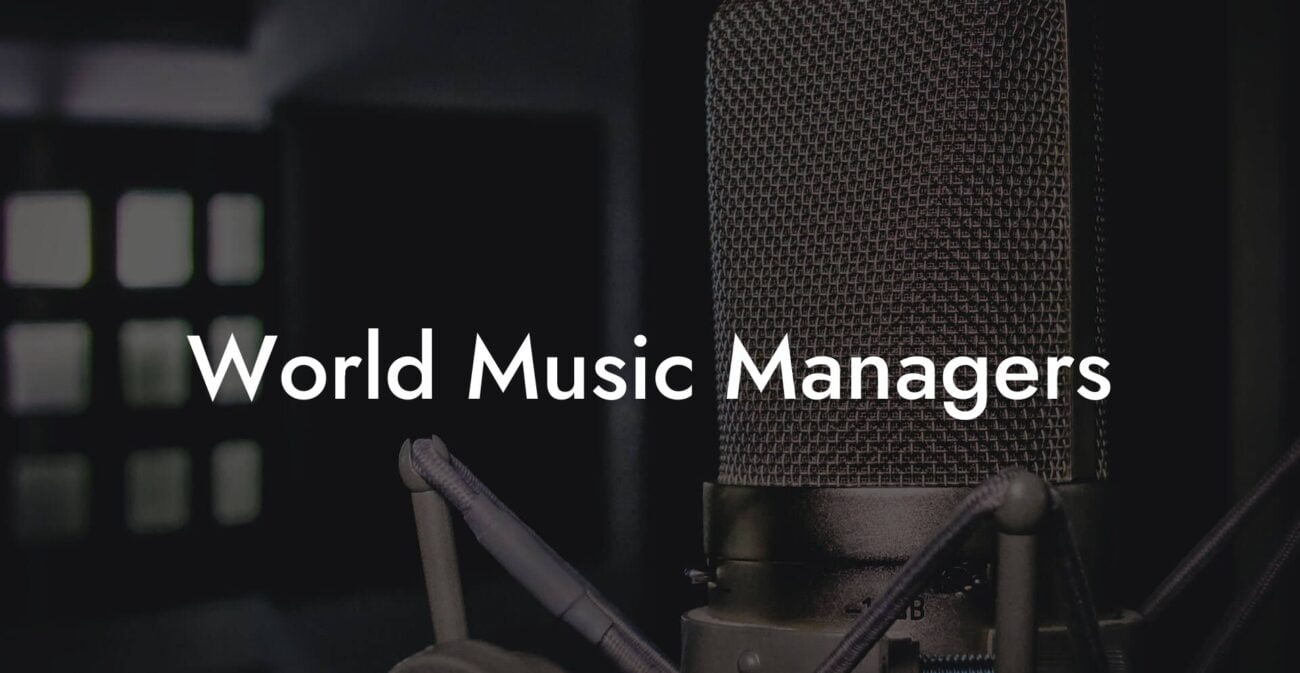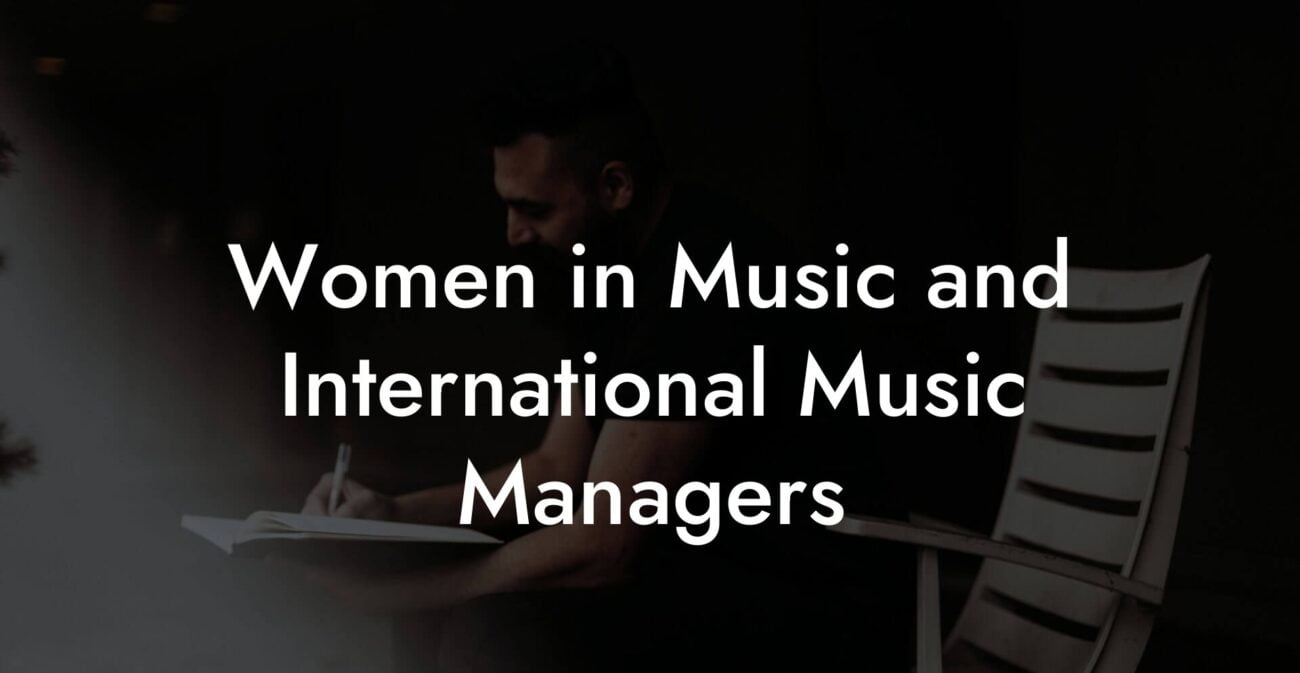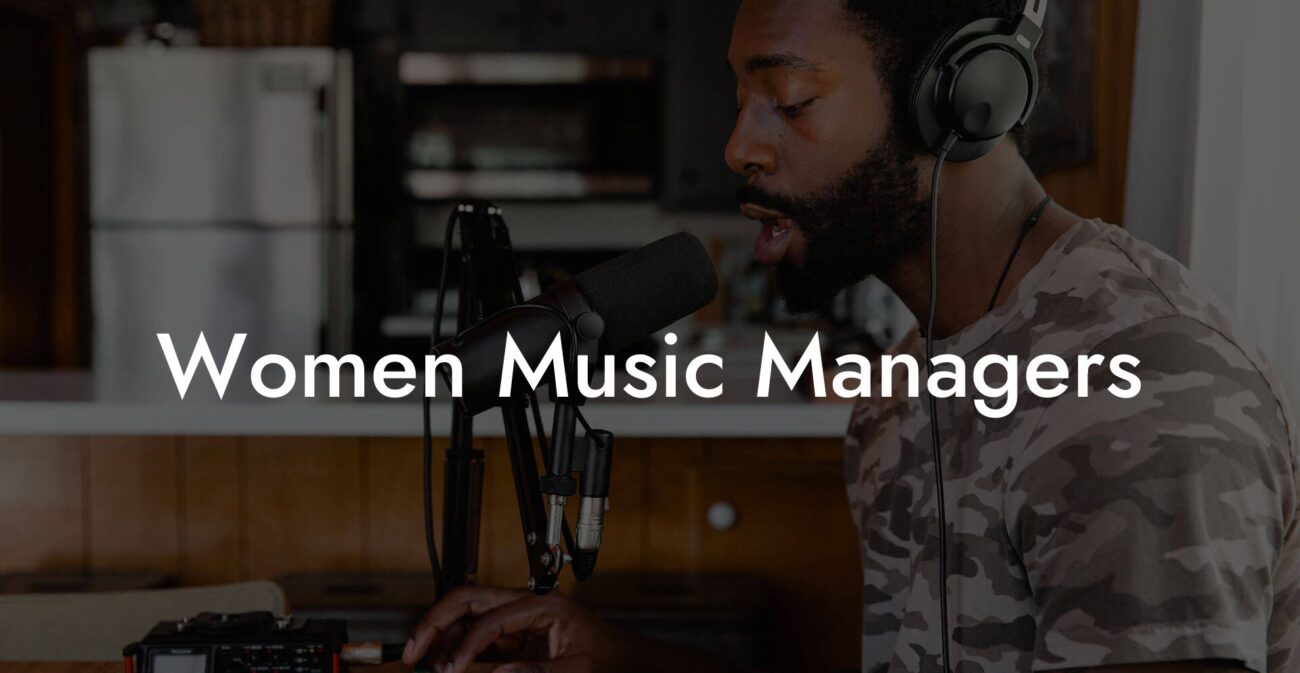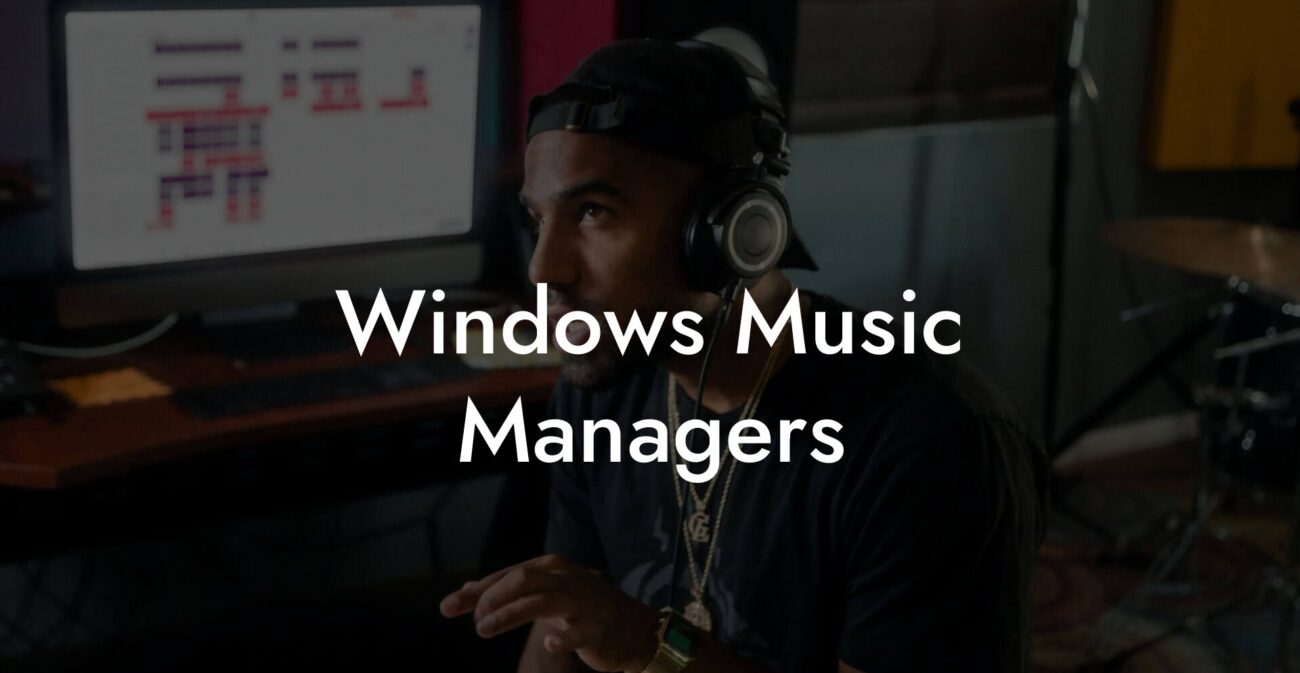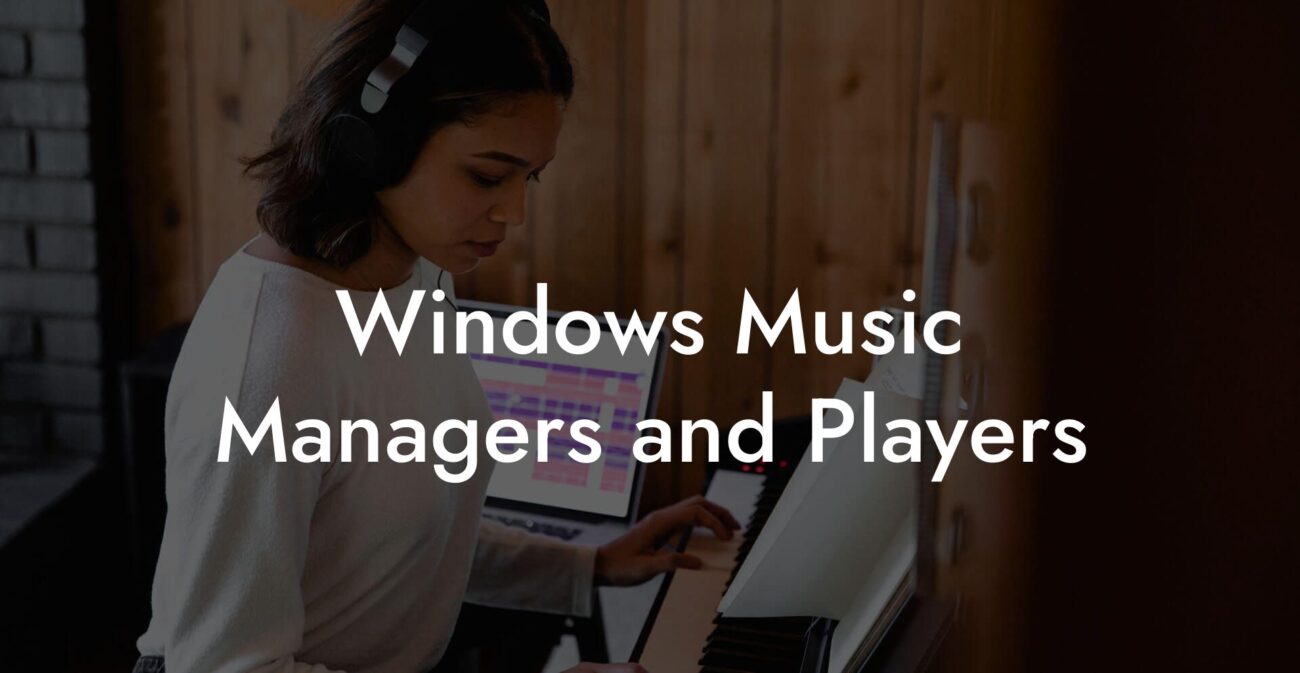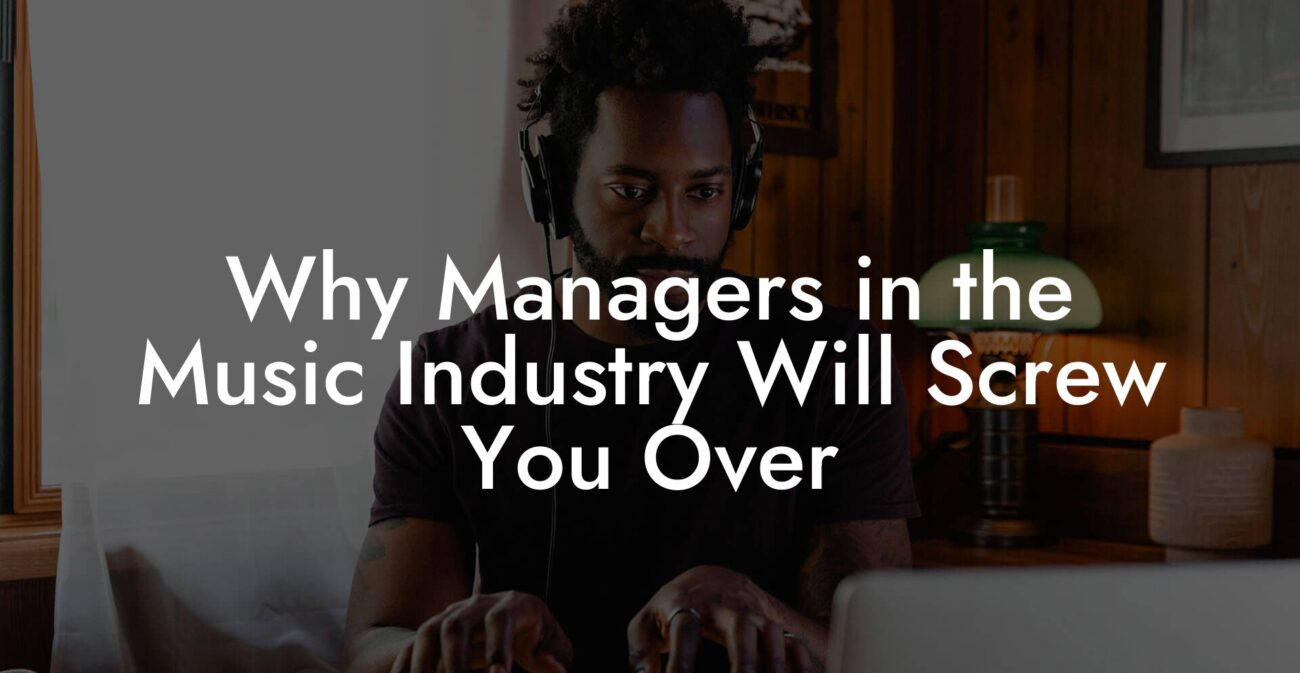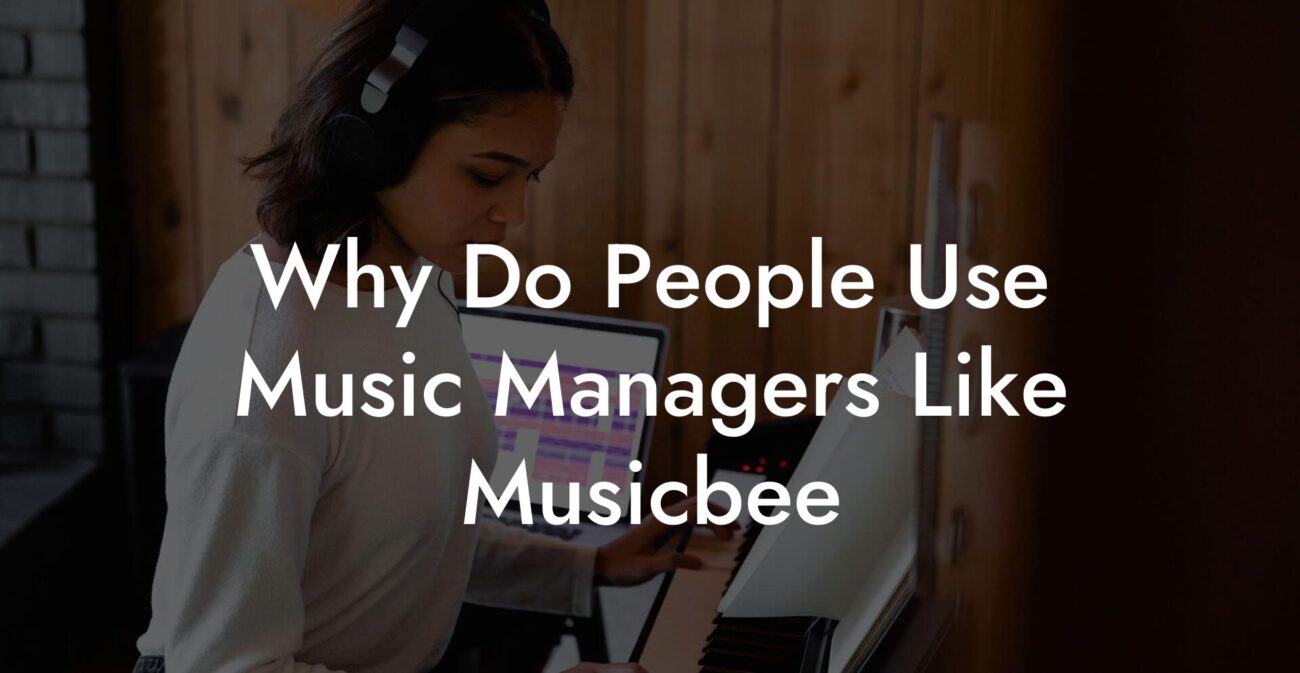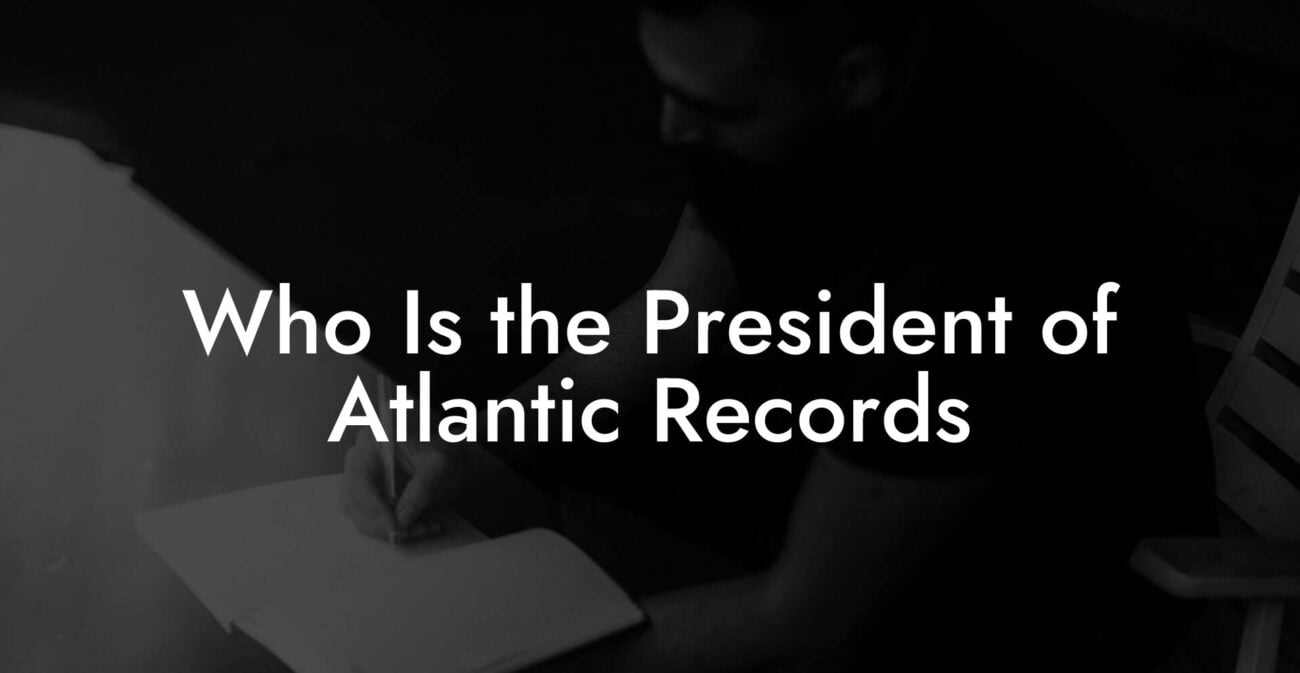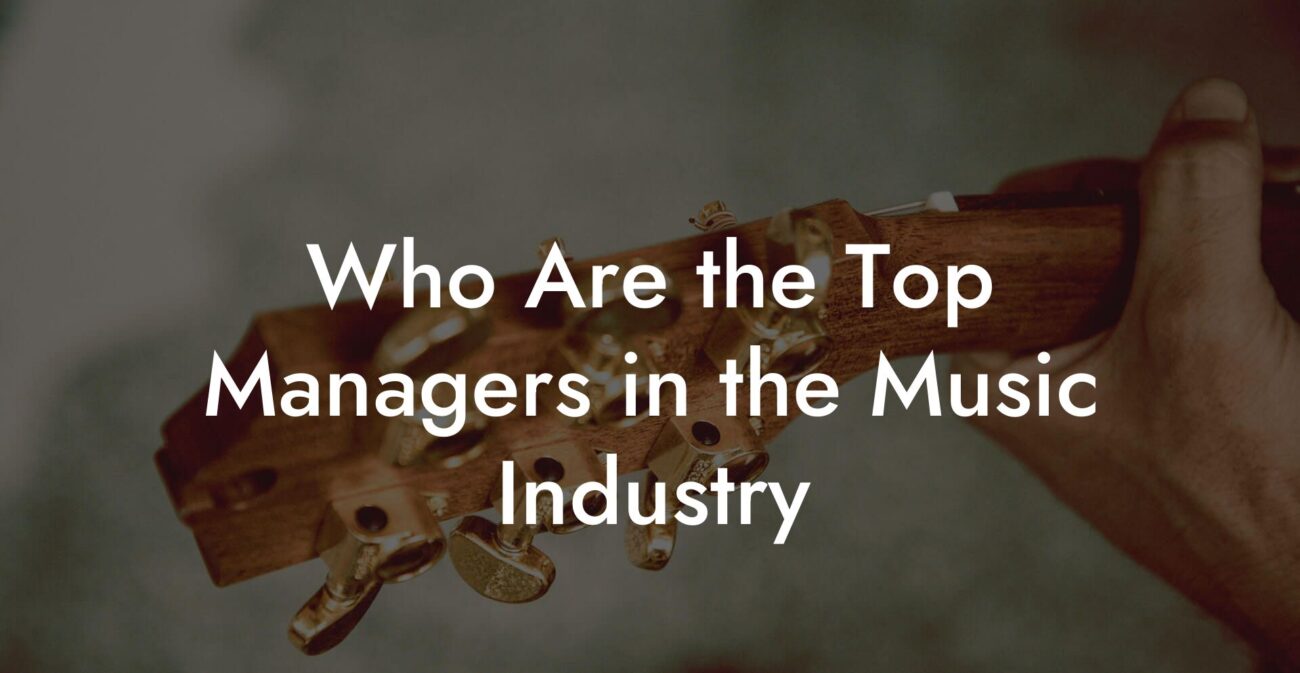Songwriting Advice
Where to Find People Who Want to Be Music Managers
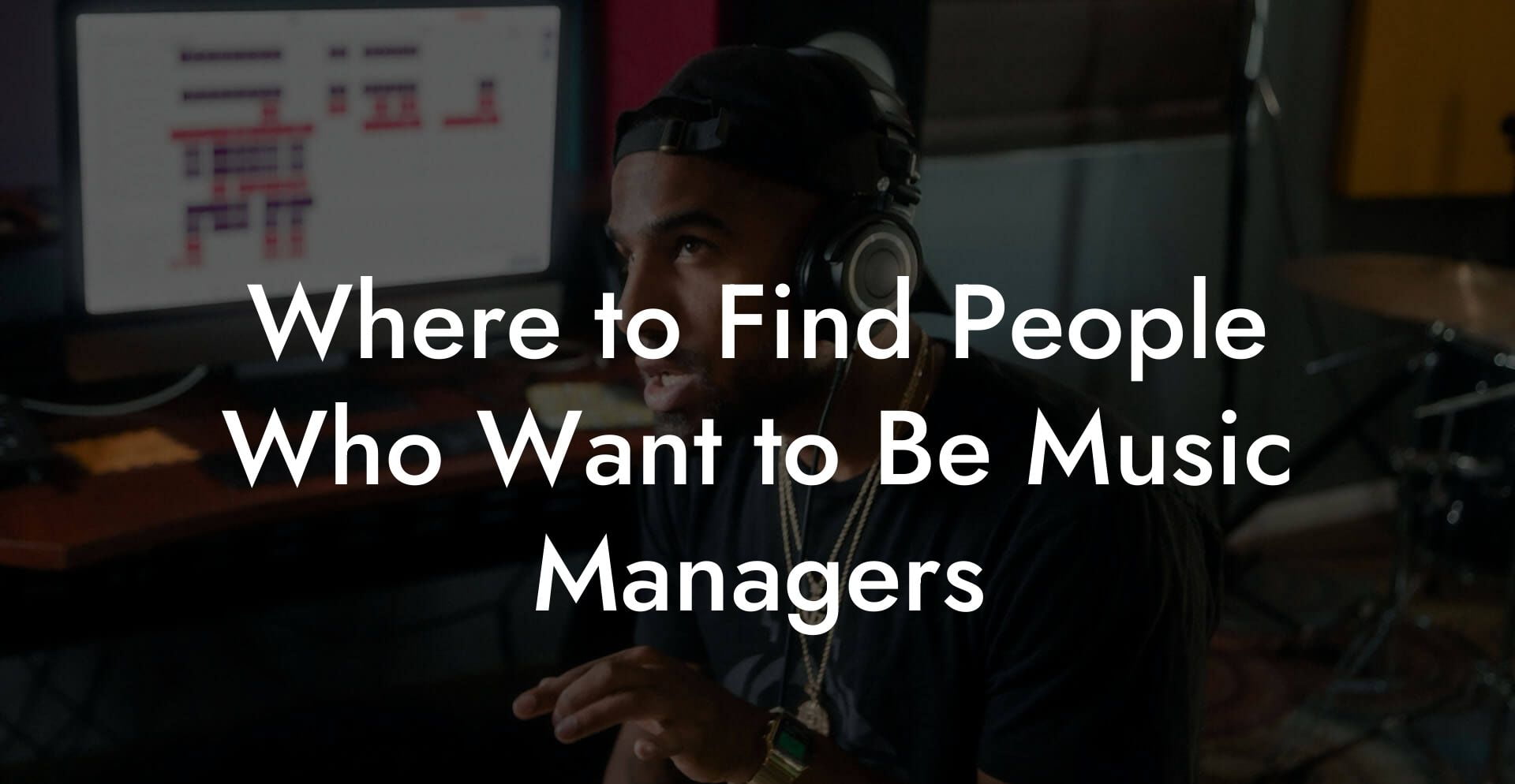
Ever wondered where in the vast cosmos of the music industry you might stumble upon someone who’s itching to become your next music manager? Picture this: you’re jamming out in your bedroom studio, your latest track blasting through your earbuds, and you suddenly think, “I need a manager who gets my vibe and is ready to take on the industry with me!” Well, buckle up, because we’re about to dive into a rollicking guide on discovering those aspiring music managers who can help skyrocket your career. Welcome to your ultimate roadmap for finding people who want to be music managers!
Quick Interruption: Ever wondered how huge artists end up fighting for their own songs? The answer is in the fine print. Learn the lines that protect you. Own your masters. Keep royalties. Keep playing shows without moving back in with Mom. Find out more →
Quick Interruption: Ever wondered how huge artists end up fighting for their own songs? The answer is in the fine print. Learn the lines that protect you. Own your masters. Keep royalties. Keep playing shows without moving back in with Mom. Find out more →
Quick Links to Useful Sections
- The Magic of Music Managers: Why You Need One
- Where Do Aspiring Music Managers Hang Out?
- Online Forums and Music Communities
- Social Media: Twitter, Instagram, TikTok, and LinkedIn
- Music Conferences, Workshops, and Meetups
- Universities and Music Schools
- Local Record Stores and Music Venues
- Qualities to Look for in a Promising Music Manager
- Strategies for Connecting with Aspiring Music Managers
- Showcase Your Unique Sound
- Offer Value from the Get-Go
- Network Like a Pro
- Utilize Collaborative Platforms
- Be Open to Experimentation
- Maximizing Digital Tools to Find Music Managers
- Nurturing Relationships: From First Chat to Dream Team
- Keep the Conversation Casual (but Purposeful)
- Set Clear Expectations Early On
- Collaborate on Small Projects
- Provide Constructive Feedback
- Celebrate Every Win
- Resources and Community Support: Your Next Steps
- Charting the Future: Embracing Collaboration in the Digital Age
- Frequently Asked Questions About Finding Aspiring Music Managers
- Embracing the Journey: Your Roadmap to Music Management Success
The Magic of Music Managers: Why You Need One
Let’s be honest, no one becomes an overnight sensation without a little help from someone who can navigate the labyrinth of record deals, streaming algorithms, and industry politics. A music manager is like that savvy friend who not only knows the ins and outs of the music biz but also isn’t afraid to hustle on your behalf. They’re your advocate at gigs, your guide in negotiations, and your partner in turning those creative sparks into chart-topping hits.
For Gen Z and millennials immersed in the DIY ethos of today’s music scene, the prospect of managing every aspect of your music career might seem overwhelming. That’s where a passionate, up-and-coming music manager comes in. They’re eager to show their skills, network their heart out, and help you harness not just your lyrical genius (aided by Lyric Assistant, of course) but also the business smarts required in this ever-evolving industry.
With the democratization of music production and the rise of platforms like SoundCloud, TikTok, and Spotify, the traditional roles in the music industry have blurred. This shift has created a goldmine of opportunities for those looking to wear multiple hats, so if you’re setting your sights on finding a music manager, know that the quest is as much about meeting like-minded, over-ambitious creative professionals as it is about striking up a business partnership.
Where Do Aspiring Music Managers Hang Out?
The beauty of today's interconnected world is that opportunities to connect with passionate industry players abound both online and offline. Here, we break down the prime hangouts where you’re bound to find people eager to carve out a niche in music management.
Online Forums and Music Communities
If you haven’t already, dive into the digital realms of music forums and communities. Think Reddit threads like r/WeAreTheMusicMakers, or specialized Facebook groups, Discord servers, and even Clubhouse rooms dedicated to music production and industry insights. These digital spaces are buzzing with passionate individuals who are not only honing their songwriting and production skills but also exploring a future in music management.
Join discussions, share your projects, and keep an eye out for posts by those seeking to transition into management roles, or perhaps even those who are already dabbling in it. The key is to be active, engage in conversations, and offer genuine insights (and a good meme or two!). Remember, authenticity is the new black in the industry.
Social Media: Twitter, Instagram, TikTok, and LinkedIn
The power of social media cannot be overstated when it comes to connecting with future music managers. Each platform has its unique flavor:
- Twitter: Follow industry hashtags like #MusicManager, #MusicIndustry, and #IndieArtist. Engage with threads discussing management tips and share your journey to catch the eyes of those looking to step into a management role.
- Instagram: Explore profiles of emerging music professionals, comment on insightful posts, and use popular hashtags in your own posts to attract like-minded creatives.
- TikTok: Yes, even TikTok is a hotbed for the next generation of music hustlers. From sharing bite-sized industry advice to behind-the-scenes glimpses of your creative process, use the platform as a way to connect with prospective managers. TikTok’s algorithm is magic when it comes to fostering organic interactions.
- LinkedIn: Although it might seem a bit formal, LinkedIn is a fantastic resource for spotting ambitious individuals interested in music management. Join music industry groups, participate in virtual events, and connect with professionals who have a foot in both the creative and business worlds.
Music Conferences, Workshops, and Meetups
While online avenues offer a wealth of connections, don’t underestimate the power of face-to-face networking. Music conferences, workshops, and meetups provide an ideal backdrop for building genuine relationships. Industry events like SXSW, MIDEM, and local music festivals are prime opportunities to rub shoulders with aspiring music managers.
These events are breeding grounds for innovation, they attract fresh talent and offer a chance to hear firsthand about emerging trends in music management. Participate in panel discussions, network at after-parties, and strike up conversations during coffee breaks. These moments might just lead to your next big collaboration.
Universities and Music Schools
Don’t look too far when it comes to finding the next generation of music managers. Colleges, universities, and specialized music schools have campuses that are buzzing with creative energy. Many young professionals studying music business, production, and management are eager to get their hands dirty in real-world experiences.
Consider attending career fairs, guest lectures, and networking events at these institutions. Not only can you offer internships or collaboration opportunities, but you may also discover a budding music manager who is as enthusiastic and driven as you are.
Local Record Stores and Music Venues
Think back to the days when record stores and local music venues were the epicenters of culture. While the landscape has shifted online, many of these brick-and-mortar spaces still serve as community hubs for music lovers and industry hopefuls. Strike up a conversation with the locals or the store owner, you never know when you might meet someone who dreams of managing the next big act.
Attend local gigs or open mic nights, and make it a habit to frequent places where music is more than just a background score. These are the environments where raw passion meets potential talent, and where future music managers might be scouting for fresh talent just like you.
Qualities to Look for in a Promising Music Manager
If you’re on the hunt for a music manager, it pays to know which qualities signal a potential success story. A great music manager is more than just a middleman, they’re strategic visionaries, industry navigators, and genuine collaborators who understand the delicate art of balancing creativity with business acumen.
When scouting out potential managers, keep an eye out for traits such as:
- Passion for Music: They should share your enthusiasm for music and understand the nuances of its creation, distribution, and promotion.
- Industry Savvy: Look for individuals who have been immersed in the musical world, whether through internships, side gigs, or simply relentless self-education on industry trends.
- Communication Skills: Effective managers are stellar communicators, able to negotiate deals, network with industry insiders, and keep you informed without drowning you in industry jargon.
- Creativity and Innovation: The landscape of music is ever-shifting. Your manager should be someone who’s excited about exploring new trends, digital marketing strategies, and innovative promotional techniques.
- Organizational Prowess: From scheduling gigs to managing legal contracts, organizational skills are non-negotiable. A manager who can juggle multiple tasks with finesse is worth their weight in gold.
These are just a few indicators that a potential music manager has what it takes to transform an indie dream into a full-blown musical legacy.
Strategies for Connecting with Aspiring Music Managers
Finding someone who wants to be a music manager is only half the battle, the next challenge is connecting with them and building a relationship that can propel both your careers. Here are some strategies to help you break the ice and establish those mutually beneficial connections.
Showcase Your Unique Sound
Whether you’re a one-hit wonder in the making or a meticulously crafted musical genius, let your personality shine! Curate your social media profiles, share your creative process on livestreams, and engage with your audience. When you project genuine enthusiasm, you attract like-minded individuals who want to be part of your journey.
Offer Value from the Get-Go
Remember, everyone’s looking to add value, and prospective music managers are no exception. Whether it’s collaborating on a unique project, offering insights from your songwriting sessions (with a little help from Lyric Assistant), or simply exchanging thoughts on the latest trends, start by showcasing what you bring to the table.
Network Like a Pro
Don’t be afraid to attend industry events, even virtual ones, and actively participate in discussions. Follow up after meeting someone intriguing, send a friendly DM, or connect on LinkedIn. Building relationships is all about genuine engagement, so skip the hard-sell and focus on shared passion and mutual growth.
Utilize Collaborative Platforms
Many creative professionals turn to platforms like SoundBetter, Fiverr, or even specialized Facebook groups where collaborations form organically. By posting your needs and sharing your vision, you invite potential music managers to come forward. Be clear about your goals and what you’re looking for in a manager to attract individuals who resonate with your vision.
Be Open to Experimentation
The world of music management is not one-size-fits-all. Sometimes, the best partnerships start off as experimental projects, maybe a one-off collaboration on a single release or a joint social media campaign. This low-stakes approach allows both you and the aspiring manager to test the waters without immediate pressure for a full-scale commitment.
Remember, every interaction is an opportunity to learn, grow, and maybe even discover your next big collaborator!
Maximizing Digital Tools to Find Music Managers
In today’s hyper-connected world, digital tools are a musician’s best friend. Beyond social media, a host of websites, apps, and platforms have emerged to facilitate networking and collaboration in the music industry. Leveraging these digital resources can give you a significant edge in finding that perfect manager.
Consider using:
- Music Industry Job Boards: Websites like Music Jobs, Sonicbids, and even LinkedIn’s job search features often list opportunities and collaborations in the music management space.
- Online Portfolios and Forums: Platforms like Behance, Stage 32, and specialized industry forums offer a glimpse into potential collaborators’ previous work. It’s a great way to assess whether their creative vision aligns with yours.
- Networking Apps: Tools like Shapr and Bumble Bizz are emerging as hotspots for professional networking. Set up a profile that highlights your musical achievements and invite collaboration from energetic music management hopefuls.
- Video Conferencing Platforms: With many meetings moving online, don’t underestimate the power of Zoom, Google Meet, or even Discord channels where live discussions and brainstorming sessions can lead to dynamic partnerships.
Integrate these tools into your overall networking strategy. The digital landscape is an ever-changing canvas, and by staying on top of the latest tech trends, you’re sure to connect with music management enthusiasts who are ready to put in the work.
Nurturing Relationships: From First Chat to Dream Team
Once you’ve made that initial connection with a potential music manager, the real work begins. Nurturing relationships takes time, trust, and a dash of creativity, think of it as curating a playlist of collaborations.
Here are some tips to transition from casual networking to a more structured, professional relationship:
Keep the Conversation Casual (but Purposeful)
Initiate conversations that are relaxed and authentic, skip the stiff corporate tone. Share your creative journey, talk about your artistic inspirations, and listen actively to their aspirations and previous experiences. A blend of casual banter and industry insight makes for a winning combo.
Set Clear Expectations Early On
If you sense a potential for a long-term partnership, it helps to outline what each of you is looking for from the start. Be upfront about your career goals, the areas where you need support, and how you envision the role of a music manager in your journey. As much as spontaneity is key to creativity, clarity is crucial in business.
Collaborate on Small Projects
Before diving into a mega project, test the waters with a smaller collaboration. A minor gig, a social media campaign, or a side project can serve as a litmus test for how well your visions align. Plus, it’s a fun way to build rapport and get a feel for each other’s work ethic.
Provide Constructive Feedback
Communication isn’t a one-way street, offer genuine feedback when working together, and be open to receiving it too. Constructive critique is invaluable in refining ideas and ensuring that you’re both growing together as professionals.
Celebrate Every Win
Whether it’s landing a key industry contact or receiving rave reviews for your latest track, celebrate the milestones. These victories, big or small, build a foundation of trust and enthusiasm that fuels ongoing collaboration.
Building this dream team isn’t an overnight process, it’s more like crafting a perfect mixtape; it takes time, experimentation, and a lot of heart. So, when you meet that prospective music manager, invest the time to cultivate the relationship, and watch your joint creative potential soar.
Resources and Community Support: Your Next Steps
The journey to finding your ideal music manager doesn’t end here. There’s a wealth of resources and communities available to empower you every step of the way. Leverage online educational platforms offering courses on music management and business, subscribe to industry publications, and attend webinars hosted by music legends and industry experts.
Join local or virtual communities, forums, Facebook groups, LinkedIn circles, and Discord servers dedicated to indie artists and music management. Engaging regularly in these spaces will not only keep you updated on the latest trends and opportunities but also help build a network of collaborators, mentors, and, yes, potential managers.
Don’t forget to take advantage of tools like Lyric Assistant. While we specialize in helping musicians effortlessly write lyrics that resonate, our community is a treasure trove of insightful discussions and shared experiences. Use these platforms as a launchpad to connect with both creative minds and managerial talents.
Your next step? Dive in, explore these communities, and remain proactive in your search. The right music manager could be just a comment, conversation, or connection away. With persistence, authenticity, and a touch of audacious passion, you’ll build a partnership that elevates your music career to unprecedented heights.
Charting the Future: Embracing Collaboration in the Digital Age
The music industry, now more than ever, is a collaborative ecosystem where artists, producers, and managers thrive through mutual support and shared vision. As someone deeply embedded in the culture of songwriting and digital creativity, the prospect of teaming up with an aspiring music manager is more than a strategic move, it’s about embracing community in its most vibrant form.
Every interaction, whether online or in a cozy coffee shop after a local gig, is a stepping stone toward building a dynamic team. Aspiring music managers are constantly on the lookout for authentic talent and innovative ideas. By positioning yourself as both a creative force and a proactive networker, you not only enhance your own credibility but also invite future collaborations that could propel you into the spotlight.
The digital age offers endless avenues to establish and nurture these relationships. Stay curious, be bold, and let your passion shine through every tweet, post, or face-to-face encounter. The next breakout manager could be lurking in your next online comment section or at that community event you almost missed. Trust in the process, because when creativity meets opportunity, the sky is not the limit, it's just the beginning.
Frequently Asked Questions About Finding Aspiring Music Managers
Here are some questions we hear most often from emerging artists on the hunt for the perfect music manager:
1. Where can I start looking for an aspiring music manager?
Begin your search in online communities, social media platforms (like Twitter, Instagram, and TikTok), networking events, and even local college campuses and music schools. These are all hotbeds for creative professionals keen to break into music management.
2. What qualities should I look for in a potential music manager?
Look for passion, industry awareness, strong communication skills, creativity, and organizational prowess. A good manager not only loves music but also understands the business side enough to negotiate deals and build a robust network.
3. How do I approach someone who might be interested in music management?
Start with a casual conversation, engage them on social media or at an event. Share your passion for music and outline your career goals. Be genuine and open to small-scale projects to gauge compatibility.
4. Can digital platforms really help me find a music manager?
Absolutely. Digital platforms, from niche job boards to creative networking apps, are fantastic avenues to connect with aspiring music managers. They allow you to showcase your talent, share your journey, and engage with potential collaborators.
5. What resources are available for learning more about music management?
Explore online courses, industry podcasts, webinars, and community forums dedicated to music and management. These resources can provide valuable insights and networking opportunities.
6. How do I know when it’s time to commit to a potential manager?
Once you’ve collaborated on small projects, communicated openly about expectations, and seen a mutual alignment in vision, you may be ready to deepen the partnership.
7. Are there local events specifically for meeting aspiring music managers?
Yes, many music festivals, meetups, and industry conferences serve as hubs for networking with upcoming managers. Keep an eye on local event listings and industry announcements.
8. What role does social media play in finding a music manager?
Social media is a powerful tool. It not only allows you to showcase your work and network on a global scale but also attracts savvy professionals who’re keen to discover fresh talent and innovative ideas.
Embracing the Journey: Your Roadmap to Music Management Success
At the end of the day, the search for a music manager is as much about self-discovery as it is about expanding your professional network. It’s a journey of trial and error, filled with serendipitous encounters, late-night strategy sessions on Discord, and moments of pure creative magic.
Every aspiring artist looks for that person who can amplify their voice, someone who’s ready to navigate the twists and turns of the industry while keeping your creative integrity intact. Whether you’re connecting with someone at a local open mic or collaborating with an influencer on TikTok, know that these interactions are the building blocks of a thriving, collaborative career.
The process may be challenging, and yes, sometimes hilariously awkward, but every conversation, every pitch, and every shared moment of musical inspiration moves you closer to building a team that embodies your passion and ambition.
So, embrace the chaos, enjoy the spontaneity, and let your genuine love for music guide your steps. With the right mix of networking, digital savvy, and a relentless pursuit of creative freedom, your search for a dynamic, enthusiastic music manager is not just a possibility, it’s an inevitable milestone on your path to musical greatness.
Remember, your journey is uniquely yours; the connections you build along the way will enrich your musical tapestry and lay the foundation for a mesmerizing career in the music industry.


